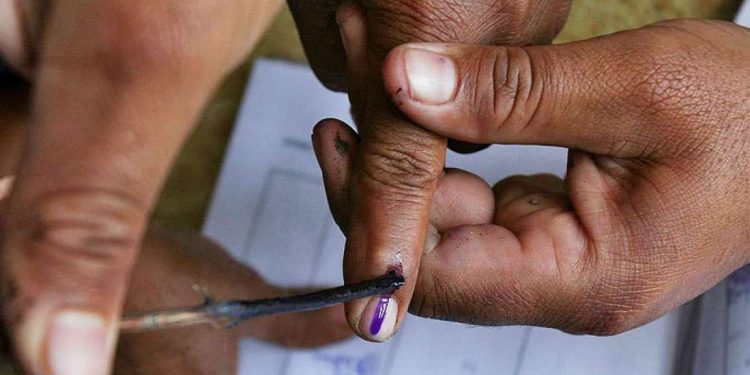As another election season approaches and Bihar is emerging as a test case to ascertain the way forward for democracy in these trying times plagued by the Covid-19 pandemic, the National Democratic Alliance (NDA) led by the BJP is shrinking. The NDA is left with fewer allies and its impact on future elections, including Bihar, will be keenly watched. Today, the Union government has only one non-BJP minister in Ramdas Athawale of the Republican Party of India (A).
The Lok Janshakti Party (LJP) of deceased Ram Vilas Paswan is ploughing a lone furrow in Bihar polls, based on a decision the party took before Paswan’s demise a week ago. Its problem is apparently with the reigning alliance partner, the JD(U), and its head, chief minister Nitish Kumar. In effect, the NDA set-up in the state has been disrupted, and this could, perhaps, impact the prospects of the BJP-JD(U) alliance. How the post-election scene shapes up not only in Bihar but what impact it has on Delhi remains to be seen after the November polls. The continuous common argument of the Delhi-based media that the LJP split is engineered by astute BJP poll managers to cut into JD(U) seats and ensure the top post in Bihar goes to the BJP may sound far-fetched now. First, the death of Ram Vilas seems unlikely to help his son, Chirag Paswan, draw any sympathy votes. Second, the LJP has always been a fringe one family party and does not hold sway over the whole state. LJP, at present, has total two seats in the Bihar Legislative Assembly. Therefore, the answer to the media clamor that LJP going solo can help BJP lies in the not too distant future.
The NDA lost the Telugu Desam Party of Nara Chandrababu Naidu before the last Lok Sabha/Assembly polls. A couple of months past the LS polls and after the Assembly polls in Maharashtra, the ruling alliance lost the Shiv Sena. The long-time BJP ally broke ranks and befriended the NCP and the Congress to grab the CM’s chair. There were serious problems between the Sena and BJP leaderships before the polls too. This helped the Sena justify its desertion of the NDA and joining hands with the rival political formation after the results were out. That it was a split verdict suited the Sena’s plans.
The Shiromani Akali Dal, another long-standing ally of the BJP in Punjab, quit the ruling alliance last month, unable to stomach the provisions of the farm and essential commodities legislations the Modi government pushed through in the last Parliament session. The Assembly polls in Punjab are due in February 2022, or a little over a year from now, and a re-induction of the SAD to the NDA fold is quite unlikely given the present farmers’ anguish being felt.
The AIADMK too was cut up with the farm bills, but it might still remain in the NDA as it has no other option left for now. Assembly polls will take place in Tamil Nadu seven months hence. BJP, though, is not a strong force in Tamil Nadu. AIADMK has only one MP in the present Lok Sabha as it was a washout for the party in the 2019 polls when the DMK captured all other seats along with a couple of seats by its Communist allies in areas bordering Kerala.
With the AIADMK not having a berth in the Union Cabinet, and Ramdas Athawale being only of a junior minister rank, the Union Cabinet is now packed entirely with the BJP, following the exits of Harsimrat Kaur Badal and Paswan. The JD(U) has kept itself out of the Modi Ministry, though it sent 16 members to the Lok Sabha. In effect, the two are not on best of terms, though they have worked out a seat-sharing formula under which BJP got 121 constituencies and the JD(U) 122 to contest. Inbuilt in this arrangement is a possibility of a fight for CM post if the alliance wins a majority. Meaning, the two could break apart which may even end up with a hung assembly that the BJP will try, with ample help of the Governor, to swing to its benefit.
There is less chance of the NDA swelling its ranks. A cited possibility is of the YSRC of Andhra chief minister Jagan Mohan Reddy joining the NDA, or the TDP returning to the old fold. The TRS of chief minister K Chandrasekhar Rao prefers to remain neutral as is the case with Orissa’s BJD which recently played truant with the farm bills vote. The BJD voted in support of the three bills in the Lok Sabha but later, after some CBI raids took place in the intervening period on its party members, changed its tune and voted against the same bills in Rajya Sabha a few days later. The prominent regional parties in UP, the SP and the BSP, will stay apart, as joining hands with the BJP will be suicidal for them.
With the present economic downturn set to worsen in future and the Modi government steadily losing its sheen, the Opposition is likely to gain more traction in coming polls. The weak positioning of the Congress, till now, might be of help to the BJP but this could result in the average voter becoming the main Opposition as was seen in 1977.







































